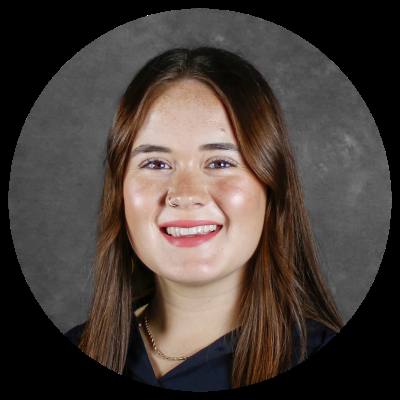On Sept. 9, U.S. Secretary of Education Linda McMahon visited Alpha School in Austin alongside Texas Education Agency Commissioner Mike Morath. Alpha School co-founder MacKenzie Price highlighted how the school is using AI to personalize and improve students’ education.
“It's the most exciting thing I've seen in education in a long time,” McMahon said about Alpha School. “I'm incredibly enthusiastic about this.”
How it works
Price started Alpha School in 2014 to provide students with individually tailored, accelerated instruction and opportunities to build life skills beyond the classroom, Price told Community Impact last year. Students complete their academic learning in two hours each day using an AI platform known as 2 Hour Learning.
The platform allows students to learn at their own pace and advance multiple grade levels in different subjects based on their performance. Price said the Alpha School model enables students to learn twice as fast as they would in a traditional school setting.
After completing their academic coursework, students may participate in workshops focused on developing life skills, such as entrepreneurship, leadership, public speaking and financial literacy. Last school year, Alpha School opened three specialized academies, including a GT School for gifted and talented students in Georgetown, esports school NextGen Academy in Northwest Austin, and Texas Sports Academy in the Lake Travis area.
The academies are led by guides, instead of teachers, who focus on motivating students and providing them with emotional support.
“It's time for us to all hold ourselves responsible for delivering better to these kids,” Price said. “Using artificial intelligence is what enables us to raise human intelligence, not just for the students, but also for the teachers and the guides and for the families.”
The update
Alpha School opened several new academies across the United States this school year, including a K-3 school in Plano and K-8 school in Fort Worth. The company is planning to open an academy in Houston this winter, according to Alpha School’s website.
Alpha School opened a virtual charter school in Arizona and is looking to open a charter school in Bastrop in 2026, Price told Community Impact in February.
Additionally, Alpha School has begun partnering with school districts to implement its 2 Hour Learning platform at some public schools. The 2 Hour Learning program has provided intervention and enrichment for 1,500 public school students across more than 50 districts, said Gaston Griffin, a representative of Studient and former Alpha School guide.
“We want districts [and] schools to pilot this so they could see and experience this incredible opportunity and solution for themselves,” Griffin said.
What they’re saying
Alpha School student Everest Nevraumont said she advanced from a fourth grade to a ninth grade reading level in one school year through the 2 Hour Learning platform.
“In reading, I'm grade nine, but in math, I'm only grade five, because in reading, I've advanced way faster,” Nevraumont said.

“This opens up the opportunity to bring back what is missing in education, which is the love of school and the love of learning,” Ray said. “This is what we did with our students that were in the failing charter school and made them the stewards of their own learning.”
Noah Lightfoot left his teaching position at Dripping Springs ISD to become a guide at Alpha School. Lightfoot said he has been able to form deeper relationships with his students and motivate them to learn through their personal interests.
Zooming out
McMahon, who became secretary of education in March, said she was excited to observe Alpha School’s AI model and see how it could change how other schools in the nation operate. Teachers are most successful when they have the ability to be innovative in their classrooms, she said.
“Let's be motivated in our states and with our school systems to inspire them to be curious enough to come and understand what is happening here,” McMahon said, “If I could achieve that goal, we would come a long way in improving our education.”
In the 2025 legislative session, state lawmakers allocated $1 billion to provide families with education saving accounts, or ESAs, to pay for private school tuition and other educational expenses. Most participating students will receive 85% of the per-student funding public schools get from state and local sources—about $10,330 in the first year of the program, according to previous Community Impact reporting.
The tuition for Alpha School campuses ranges from $10,000 to $40,000 a year, Price said. Community Impact asked Price if she was hopeful the new ESA program, which becomes effective next school year, would expand access to Alpha School academies for more Texas families.
“Absolutely,” Price said. “[With] more of these types of opportunities for families to jump into private education [and] by getting that support from ESAs, it's going to open up more opportunities.”
Alpha School academies regularly assess students to determine what they need to learn and build personalized lesson plans, Price said. The company uses AI to monitor how well a student is learning, she said.
House Bill 8 would eliminate the State of Texas Assessments of Academic Readiness and replace it with three shorter tests, which students would take at the beginning, middle and end of each school year. State lawmakers passed the legislation and sent it to the governor's desk Sept. 3.
“Several of the concepts that you heard today are actually part of the new system that we will be deploying in the 2027-28 school year here in Texas,” Morath said about standardized testing at the Alpha School event Sept. 9.





